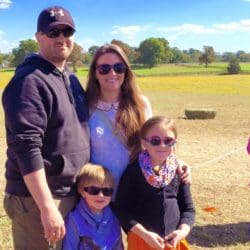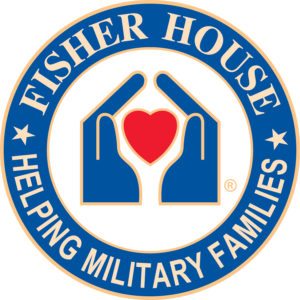The one thing I can tell you is that you can do this. There is a massive community of caregivers and veterans behind you cheering you on.
What moment did you realize you were a military caregiver?
It was a long time before I really made the connection that I am a caregiver. One day at Walter Reed National Military Medical Center, Michael and I had a very rare day off from appointments. He slept and rested at the Fisher House, but I still made the walk across campus to the Warrior Transition Unit (WTU) offices and took care of paperwork, transition plans, and preparation for him. I spent hours in meetings, even when he was “off duty.” I didn’t call myself a caregiver because I thought I didn’t live up to the title, until I realized that I was serving a necessary role that no one else could fill for him.
What does being a military caregiver mean to you?
It means I get to live and breathe among the bravest and most selfless patriots alive today. It means constantly being humbled as I watch grown men learn to walk again, but simultaneously being empowered to speak up for them any opportunity I am afforded.
What is the most difficult thing about your daily routine?
I think the most difficult thing is just trying to find balance. When you care for your spouse and you have small children, you are caring for everyone. It can feel like I’m constantly pouring out and nothing is being refilled. I know self-care is important but trying to make it a priority and balance that with caring for everyone else has been my struggle for years now.

My Story
Jacqueline has been caring for her husband Michael for almost nine years now. On his 26th birthday, he was very seriously wounded in combat in Afghanistan. His jaw was shattered by shrapnel and then rebuilt with titanium, resulting in a traumatic brain injury (TBI) that he still fights to overcome. The right side of his body sustained extensive damage which affects his mobility. With little support during the early days of caregiving, Jacqueline fought to ensure Michael got the care he needed. She manages his care, advocates for him, provides wound care, and assists him daily with the effects of his TBI.
Jacqueline found a passion for policy advocacy. She's seen first-hand the negative effects that occur when wounded warriors are unable to get the care they need. She's excited to use this Fellowship as a platform to advocate for better care that supports the wounded and their families.











